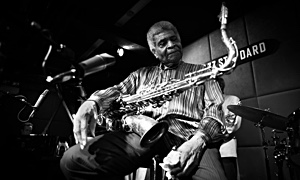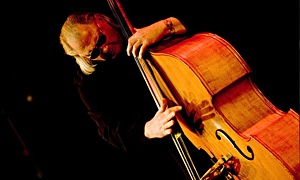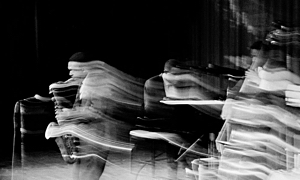Home » Jazz Articles » On and Off the Grid » The Grammy Awards: To Be or Not To Be?
The Grammy Awards: To Be or Not To Be?
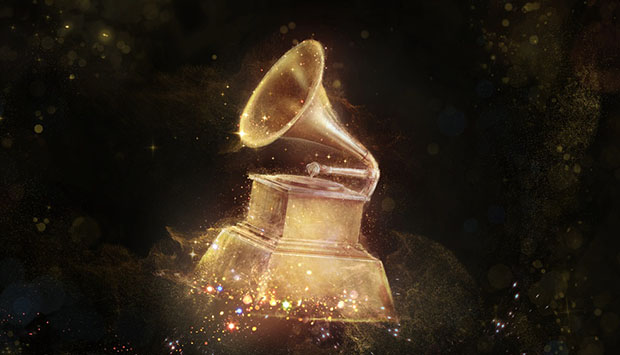
I tuned in a few times over the years to watch the Grammy Awards because jazz names were mentioned and I wanted to see them. What I got was Chick Corea playing with the Foo Fighters. I wonder what brainchild thought of that pairing? The next time was to the 2011 Grammy Awards, where Diana Krall was supposed to be featured with Paul McCartney. That was a bust. I think in some small way the committee was trying to reach out to the younger audiences. Wow, what a waste of 10 minutes that was. It was not the best situation for Krall to be seen in. It would have been nice to have her sing instead of McCartney. McCartney, no doubt, is one of the great pop composers, but he shouldn't sing or present himself as a Tin Pan Alley composer or singer. It was not good.
Before, I continue, I have to say this. It seems that when some pop or rock stars have reached a certain point in their careers, they, their managers or record company execs decide it's time to conquer jazz. And they have the audacity to actually put out a standards type album with lush arrangements and great musicians...and their singing is absolutely awful. Please, someone tell them to stick to what they know and stay away from an art form they don't know anything about or belong in. It takes real talent to be a jazzer. Sorry, I had to rant. So many of my jazz friends feel this way too, but never say anything.
Back to the Grammy Awards.
The Grammy Awards started in the early 1950s. The membership was small, but has grown tremendously in the last 62 years.
When you visit the Grammy website it lists categories you can join as:
Musician;
Songwriter;
Producer, Engineer.
All of the above categories fall into genres, the biggest and most popular being pop, rock and country. Some of these genres have their own award shows besides the Grammy Awards. As far as I am concerned there should only be one TV show. Too many awards for the same genre cancel each other out. Either have one show that covers all genres or have one show for each genre. In this way at least jazz would have a chance for some publicity. At the Recording Academy website you can see that there is a Latin Recording Academy, but nowhere is there a jazz Recording Academy.
In order to join you must have done something in one of these categories that is recorded and related to the industry. For instance, when I joined, I wanted to be able to vote in all three categories. Therefore I had to prove I was a recording artist, songwriter (composer) and producer. Once you have joined, you can vote in the various fields. When the first round of ballots comes in the mail, there is something like 100-160 best artists, solos, recordings, etc. to vote on.
This is how it recently got a little tricky. With the emergence in jazz of self-produced records or independent labels, many of these labels do not have the funds to join, much less send in thirteen required copies of a record for each field. If you want to submit one record in four fields, that's fifty-two records that have to be shipped to Hollywood. Big labels like Blue Note can not only afford to do this, but they have the big bucks to promote themselves. The small labels can't. This means many jazz artists are never submitted and it is a shame because there is some great music and musicians out there that the general voting population will never hear.
After you vote in the first round, a few months later you are sent a list of the final five for which to vote. You are urged to vote in your field of expertise. In other words, if you are a jazz musician, don't vote in the pop field.
Only recently, the Grammy committee dropped many categories, going from 109 to 78, reducing and consolidating its R&B, American roots music, classical, Latin, jazz, country, pop and rock fields, leaving those artists "in the lurch." The main thrust of these televised shows is pop, rock & roll and country music. The jazz winners are announced and given their Grammy Awards on a different day in a non-televised event. When Esperanza Spalding won in 2010 for New Artist, and she accepted the Grammy onstage in front of the TV audience, I for one was hocked that the Grammy committee was even aware of her talents. This was a big deal. She beat out Justin Bieber, the biggest teen idol on the planet, making his millions of fans very angry. Realizing that even though Spalding is with a major label, and in spite of her talent, it took tons of money in promotion for the public and the Grammy committee to become aware of her.
In spite of jazz having the Downbeat Critics' Awards, The Jazz Journalist Awards, and there are many other websites and magazines that have their top ten lists and best artist lists in all categories—Best Solo, Best Recording, Best Composition, Best Instrumentalist, etc—the one thing none of these outlets have is television exposure.
As much as Wynton Marsalis and Jazz at Lincoln Center have done much to expose the world to jazz including outreach programs, have they really expanded the jazz audiences to where we would like them to be?
The truth is I hope it has, but I don't know. I do know that jazz clubs and audiences have been dwindling since the seventies, even with the so-called reemergence of jazz. The colleges and universities, with their jazz programs, are ideally meant to expand the jazz audience, but all they do is graduate and expand more out-of-work musicians. Over the last ten years or so, there have been arguments and speculations over how the jazz community can have more exposure.
This year, UNESCO webcast the first International jazz Day from Paris. Everyone agrees that TV is the answer, and yet this program and its two associated concerts in New Orleans and New York were not televised. This was an enormous undertaking and yet the only way I knew about it was through Jazz Promo Services. This event should have been splashed all over TV, with major news coverage and a TV special.
Many CDs don't make it to the review desks of the jazz journalists. Knowing many of the journalists, I know they are inundated with too many CDs and downloads, without enough time to review them all. That's why the same people win these awards year after year.
Does that mean that we, as artists, don't care about awards or award shows? I sent out a small questionnaire to Grammy and non-Grammy winners. Here are some of their answers:

Pat Martino, legendary guitarist and Grammy winner:
"The Grammy Awards, like some other professional events, have implications that not only depend upon the individual artist but at the same time coordinate through the multiple interactions of a number of individuals. Within a larger group, artists, along with their musical colleagues, supportive management, producers, engineers, booking agents, etc., bring to fruition the collective result—the sum of its parts—and that's what's awarded by the Grammy Awards, through public recognition."
"The Grammy or Emmy Awards, as well as a number of other similar public events, are industrial crescendo's that are in many ways corporate, as opposed to being based upon individualized aesthetic achievements.
Do we need them and why?
"Yes, I do think we need them. Music can be seen, and defined as a craft, or a universal language. Both of these support each other by leading us toward important learning experiences. Whether or not the result causes the amplification of public recognition, or self-esteem is solely up to the individual, but the presence of both is decisively valuable."
Can the music world get along without them?
"I'm sure that the music world, (like a chameleon that it is) can adapt to any change that provides opportunity."
Are they important to you?
"In an imaginative way, combinative vehicles offer movement into social, as well as cultural areas that objectively expand ones scope. In this way all things are important to me."
Are they fair?
"As to what's fair, or unfair, when seen from a position outside of those polarities, one is no longer subject to a condition that that initially seemed myopic.
Very simply put, they are important; we need them; and what's fair in one persons' eye is unfair in another's. When I read Pat's answer I was leaning to "they aren't important." jazz is so much more than awards and there are too many jazz musician/vocalist that are not given a chance.

Roseanna Vitro, jazz vocalist and recent Grammy nominee, answering the same questions, looks at it a little differently:
Do we need them and why?
"Awards and competitions have always been the way for talented students to stand out from the crowd. Those of us living on the scene in New York City realize how easy it is to get lost in the crowd. Whether one is talking about the Grammy Awards (which was quite controversial this year because of the categories they dropped) or critics and fan Polls in Downbeat or Jazz Times Magazine, they all bring attention to those who won. I don't always agree with who won, but I still believe it's better to have these awards. Young musicians and older musicians have better opportunities and are inspired when they receive an award or attention."
Can the music world get along without them?
"Naturally the music world could get along without the polls and awards. But it really depends on whom you're talking about when you say the 'music world.' Serious musicians don't pay much mind to any of this in the long term. It's like reviews; you would always rather read a good review on your performance or recording, but you know it's only one guy's opinion. I teach my students to never take the good reviews too seriously and the same with the bad reviews. You simply do your best and continue to learn and improve throughout your musical life."
Are they important to you?
"I've had an unusual experience because in my younger years I released some amazing projects that did not receive the attention I dreamed they would receive. Now in my later years, I just received a Grammy nomination for my last recording, The Music of Randy Newman (Motéma, 2011). I was shocked when I heard the news."
Are they fair?
"I think 'fair' has more to do with who's judging and their taste and ethics. I know a few stories where one musician who should've been in the finals of a competition was switched with another because of political reasons or family ties. There are many factors that come into play when you're giving money and opportunities. Life is not fair. But we have to stay positive and always hope that deserving musicians will get their day in the sun. The cats that are negative will never attract the attention they desire. I support the awards system and when I see someone like "Sheila Jordan" win an NEA Masters Award, it makes me feel really good."
Again another positive for the Grammy Awards.
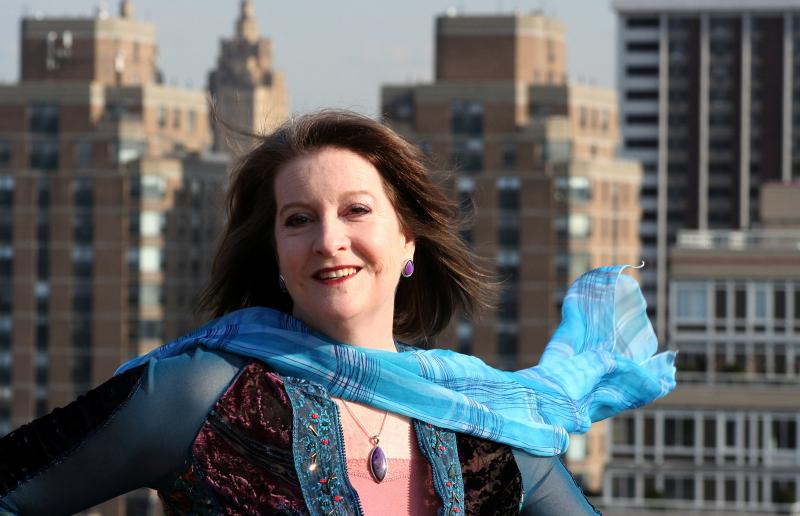
Judi Silvano, jazz vocalist and non-Grammy winner, as of yet:
Are you a voting member of the Recording Academy?
"Yes, I've been a member for the past 10 years or so, since I realized that it is one way that musicians have a say in what musical projects get recognized beyond the commercial and promotional view. I am always amazed how many friends and hardworking musicians there are on the scene that just haven't taken advantage of this ability to cast their vote and help decide some of the issues that affect us. I consider the expense of membership to be as valuable as being a member of one of the publishing societies such as BMI or ASCAP and the Musician's Union. There are no guarantees of personal advancement with membership, yet there's more of a chance to be part of the scene when you join with other likeminded folks and help create awareness and appreciation for what we do, for our craft."
If you are not, would you like to be?
"I wish more of my colleagues would participate and vote to take some of what little control we as creative artists have in the marketplace."
How important is the Grammy Awards to you?
"The Grammy Awards is an important avenue, as I said before, of being part of an organization that establishes increased appreciation for how this music enriches the culture of our world. While there has been controversy of the range and elimination of some categories, the Grammy Awards ceremony is still a vehicle for some brilliant talents to be seen and heard on a broad scale. I would be honored to have some of my musical contribution be considered one day by the Grammy Awards' NARAS membership, and though I do not make my work for that purpose, the drive for recognition is one element of the creative process. Sharing one's personal vision through music is both universal and intimate."
Do you think they are fair?
"Ah, well, life isn't fair and the Grammy Awards are a man-and woman-made construct that has become laden with rules and parameters of judgment that sometimes defy reason. There has been a great out-cry in particular about the lessening of descriptive categories for consideration of jazz and jazz-infused works that is really unfortunate. Given the worldwide love and enthusiasm for the many various styles under the 'jazz' umbrella, it feels very strange to have observed the decrease in the styles within what is loosely called jazz. This has happened concurrently with other genres' representational categories increasing."

Here's a surprising and opposite view from vocalist Fay Victor:
Are you a voting member of the Recording Academy?
"No I am not."
If you are not, would you like to be?
"No I would not like to be."
How important is the Grammy Awards to you?
"They aren't important at all. The Grammy represent commercial music with an artistic sheen, so I don't see it as an event representing something important—just touting who is commercially successful or exciting. There are great moments, such as Esperanza winning, but these are rare."
Do you think they are fair?
"What do you mean by fair? If you mean fair for all musicians, well no but that isn't their point in the first place. They aren't about music in the end."
Fay has a totally opposing view from the others. A few weeks ago I might have agreed with her. What made me change? I have always felt that as much as I love jazz, the jazz community has been going downhill since the early sixties. And no matter what kind of jazz musician you are, from so-called commercial to free form improviser, we need wider recognition in order to sustain. It is no longer a matter of black or white; it's a matter of jazz—and we need to come together as one.
Judi Silvano hit the nail on the head: "I wish more of my colleagues would participate and vote." I contacted Annika Frank of the Recording Academy and asked how big the membership is and how many are jazz members? Her reply was: "Thank you for your email. We currently have 11,930 registered voting members throughout the United States, with 838 reporting jazz their primary genre." That's approximately a little more that 7%.
Seven percent is very little in comparison to the other genres. There must be a hell of a lot more jazz recording musicians out there. If we want to be noticed, we have to join and we have to vote. Again, we the musicians must take responsibility for sustaining our craft. There is power in numbers. Somehow the big companies have to invest in jazz in order to educate the public. Instead of posting videos on YouTube, TV shows need to be created even if they are specials on a major network and not on PBS. Kids don't watch PBS.
Years ago, Dr. Billy Taylor had a weekly TV show and as a young kid I couldn't wait to see it every week. Hugh Hefner produced a show called, Live at The Playboy Penthouse, and every week there was a special jazz artist featured. We, as jazz artists, deserve this.
The only way this music is going to survive is exposure, exposure, and more exposure. Maybe in the near future jazz will have its own televised Grammy Awards show and I will finally watch a worthwhile awards show that means something to me.
Photo Credits:
Page 2, Pat Martino: John Broughton
Page 3, Roseanna Vitro: John Abbott
Page 3, Judi Silvano: Courtesy of Judi Silvano
Page 4, Fay Victor: Hans Speekenbrink
< Previous
Introducing The Eyal Vilner Big Band
Next >
Moxxy
Comments
Tags
Dom Minasi
On and Off the Grid
United States
Chick Corea
Diana Krall
Esperanza Spalding
wynton marsalis
Pat Martino
Roseanna Vitro
Judi Silvano
Fay Victor
Billy Taylor
For the Love of Jazz
 All About Jazz has been a pillar of jazz since 1995, championing it as an art form and, more importantly, supporting the musicians who create it. Our enduring commitment has made "AAJ" one of the most culturally important websites of its kind, read by hundreds of thousands of fans, musicians and industry figures every month.
All About Jazz has been a pillar of jazz since 1995, championing it as an art form and, more importantly, supporting the musicians who create it. Our enduring commitment has made "AAJ" one of the most culturally important websites of its kind, read by hundreds of thousands of fans, musicians and industry figures every month.






